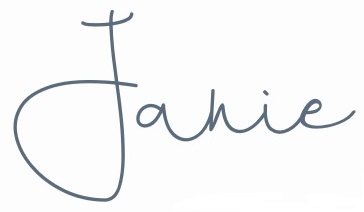Choose Curiosity.

Today, Helen's* ex asked her to transport the children to an event that he wanted them to attend, and it was at an out-of-the-way location, not really convenient for Helen. The ex said something in those messages about how Helen could "make the time" for what he was asking of her.
*I talk about "Helen" a lot. She's not a real person and she's not a real client. She's more like a composite character. I will never reveal an actual conversation that I've had with an actual client. Ever.
Helen asked me about how she should respond.
Instead of telling her what to say, I asked her how she was feeling right at that moment.
"Frustrated, duh," she replied, looking at me like I had five heads.
"Okay," I replied. "Why were you frustrated?"
"Just look at this freaking message," she replied. "It's so disrespectful."
Here’s what I told her next.
"I know you want to say the 'right' thing , and you believe there is a 'right' thing and that I know what it is, so you want me to tell you. You're thinking that will allow you to feel comfortable with the response you gave. . . until your ex complains about the response. And, then we'll circle around this merry-go-round again."
But what if, instead of riding around in the same circle, Helen could actually generate how she wants to feel now, and from that feeling, she sends her response.
The message from Helen's ex was not disrespectful. That's not a thing, friends.
The message from Helen's ex was a collection of letters, that formed words, that were strung into a sentence. . .
that appeared on Helen's phone.
That's it.
It's so boring, you could almost yawn.
Then, Helen read the words and had the thought, "he should be more respectful toward me."
Helen then felt frustrated, because she has a human brain that's working properly. If you think a person does not respect you the way that they should, it makes perfect sense that you would feel frustration.
There is no "right" response that can come from feeling frustrated.
"What about curiosity?" I asked Helen. "Could you generate a feeling of curiosity when you see that message from your ex? What would you need to be thinking to feel curious?"
I held my breath for what felt like a very long time as I waited for Helen to answer me.
To her credit, Helen must have worked very hard to get her brain to think about my question, because veeeery slowly, I saw the expression on Helen's face release, from tight frustration to neutrality to contemplation.
And then she said, "I would have to ask myself why he would send that message, telling me that I could make time for his request. I'd have to ask myself what's really going on with him."
"What is going on with him?" Now, I'm even curious.
"I think he feels like he's being judged as being the inferior parent, because the kids are with me most of the time."
As Helen said these words to me, she let out a deep exhale, almost like she was releasing something very heavy that she'd been carrying around for a long time.
"And he would be right about that, wouldn't he? Sometimes, you are judging him?" I said, almost in a whisper (because I knew Helen's brain could start fighting me at any moment for the old story that left her feeling frustrated.)
"Yes," she admitted. "Sometimes I am."
(More exhaling.)
I haven't even told you the best part of this story.
The best part of this story is that Helen was just telling me, only a few weeks ago, about how her ex was so narcissistic that examining her own thinking about him could not possibly be useful.
And yet, when Helen was willing to generate curiosity, she was able to access her own wisdom about what was really happening when he sent that "disrespectful" message to her.
She would never have gotten there from a feeling of frustration.
Helen didn't need my help formulating the words to say back to her ex. She needed my help looking at how her own thinking was getting in the way of sending the "right" response.
"Now, you can answer," I told her. "And you know what to say, don't you?"
Generate curiosity, my friends. It feels so much better than frustration, and that's reason enough.
And you might also surprise yourself after you get curious.
Talk to you soon.




